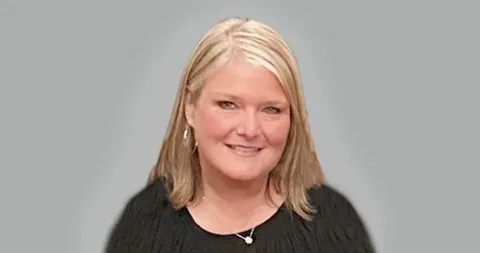How to Become a Nurse: A Complete Guide

Updated April 12, 2024
Nurses of all educational backgrounds and levels are needed now more than ever. With the population aging and living with a more complex set of health conditions, there is an especially urgent demand for second-career nurses.
The increased need for more nurses in the workforce necessitates educating nursing students to prepare them for the real world. This article will help you understand how to become a nurse from start to finish, including the education aspiring nurses need to complete, such as an online Accelerated Bachelor of Science in Nursing (ABSN) degree.
The following information will serve as a good starting point for anyone interested in becoming a nurse:
- What is a Nurse?
- Required Skills to Become a Nurse
- Qualities of a Nurse
- Roles and Responsibilities of a Nurse
- Different Types of Nursing Professionals
- When and Where Do Nurses Work?
- 4 Steps to Become an RN
- RN Practice Areas
- How Much Do Nurses Make?
- How Long Does It Take to Become a Nurse?
What is a Nurse?
Working within a team of health care professionals, nurses are responsible for the care and overall well-being of individuals who may need healthcare treatment. Nurses provide compassionate support in an ever-changing environment.
Nurses work in a wide range of areas and specialties, including acute care settings like hospitals and surgical centers, as well as home health agencies, schools, and nursing homes. Their roles can range from working as a licensed practical nurse (LPN) to conducting research on a variety of complicated health care questions at the Ph.D. or doctorate level.
The majority of the workforce consists of registered nurses (RNs). Most RNs have a bachelor’s degree, which is typically acquired at a four-year university. However, for the right candidates this can also be completed in as little as two years through accelerated nursing programs.
Required Skills to Become a Nurse
A nurse performs many duties during any shift, requiring specialized training and education. Here are some of the skills used by nurses in their daily work:
- Cultural competency: Nurses interact with patients and staff members from diverse backgrounds. Culturally competent nurses can effectively communicate and develop relationships within the contexts of different cultures.
- Conflict resolution: Nurses may encounter conflicts with their patients, colleagues, and managers. Effective resolution requires understanding all sides of a situation and choosing the right response for the moment.
- Critical thinking: Nurses work in a highly dynamic industry. Needs are rarely the same from one patient to the next. Conditions can change rapidly, which requires medical staff to look at the entire person and provide individualized care.
- Communication skills: Nurses are responsible for providing education and presenting crucial medical information when working directly with patients. Being an efficient and effective communicator is especially important. This includes sharing changes with all necessary individuals and explaining complex medical conditions in a way that makes sense to patients.
- Time management: In many settings, nurses are responsible for multiple patients at a time. Patients’ needs must be prioritized and clustered to complete all necessary tasks. Time management is a skill that benefits both nurses and patients.
Qualities of a Nurse
Nurses are the front line of health care. They work directly with patients, collect data and facilitate the logistics required at every turn of care. Nurses are experienced in working with people and managing their health-related problems and concerns. They are also trained in looking at the individual as a whole.
Although there are no character requirements for acceptance into a nursing program, certain qualities can help you become a nurse and improve the lives of patients as well as make nurses’ lives in and out of work run more efficiently, including:
- Emotional intelligence: Working in emotionally charged situations can be challenging for nurses. Understanding yourself, maintaining the ability to control your emotions and having a healthy outlet to release frustrations may be crucial. A strong support system can also be invaluable for nurses in these situations daily. Knowing people will support you during difficult times can be very comforting and play a part in how you process the emotions of the job.
- Choosing to care for those at their most vulnerable: As a health care professional, you will be exposed to many vulnerable moments throughout your career. You may find yourself in many situations without control over the outcome. Nevertheless, showing support for your patients as they go through vulnerable transitions is imperative.
- Physical stamina: Nurses spend most of their time at work on their feet in a fast-paced working environment. Shifts can be very long, and there may be limited time to sit down and nourish yourself. Patients are also becoming heavier. Nurses are typically responsible for turning patients bedbound and needing assistance. This means that it could be helpful for nurses to be capable of lifting a considerable amount of weight.
- Compassion: It’s essential to be compassionate and empathetic when handling patients' conditions. Nurses care for people when they are in a vulnerable state, which can be challenging on an emotional level.
Roles and Responsibilities of a Nurse
RNs are responsible for many aspects of the health care system, including overall patient well-being and safety. Their medical knowledge allows them to conduct assessments, prioritize medical interventions, administer medications, and educate patients about simple and complex medical procedures.
Depending on their clinical setting and official duties, RNs are responsible for various tasks and responsibilities. They are responsible for drawing blood, communicating lab results, administering treatment or procedures and educating patients on their changing health conditions. General duties include:
- Documenting and communicating health history
- Interpreting and acting on patient charts
- Communicating with physicians
- Monitoring responses to medications
- Consulting with health care team
- Assessing health status
- Interpreting vital signs
Different Types of Nursing Professionals
RNs are the most sought-after nursing credential, making up most of the health care workforce. Nursing education can range from earning the degree necessary to become an LPN to a graduate degree for a nurse practitioner role. Each state has a different set of criteria and scope of practice for each level of nursing. Therefore, the path to becoming a nurse can vary greatly depending on the state where a nurse is licensed.
Licensed Practical Nurses (LPNs) and Licensed Vocational Nurses (LVNs)
Licensed practical nurses (LPNs) or licensed vocational nurses (LVNs) work alongside RNs in direct patient care. These professionals carry similar responsibilities with LPN or LVN titles set by state regulations. LPNs are usually able to monitor and document medical history and communicate with doctors and RNs to provide the best possible care for their patients.
The state where the LPN is licensed and the scope of practice defined by the state board of nursing will determine where LPNs are utilized within the workforce. In most states, they can provide routine care and procedures such as changing dressings. Some states permit them to start IVs and administer medications independently. However, they are typically restricted to oral medication administration under the supervision of an RN.
LPNs and LVNs must complete a one-year diploma in practical nursing or an Associate Degree in Nursing (ADN) lasting up to two years. They must pass the National Council Licensure Examination for Vocational or Practical Nurses (NCLEX-PN) before practicing.
Registered Nurses
As the largest group of individuals in the health care field, RNs delegate tasks as necessary to LPNs and certified nursing assistants (CNAs). RNs assess patients’ medical conditions, educate patients on disease processes, administer medications and communicate with physicians and health care team members. In addition to managing the care of multiple patients at once, they supervise CNAs and LPNs to ensure that competent and safe care is provided.
The most common degree held by RNs is the Bachelor of Science in Nursing (BSN). Forty-seven percent of RNs held BSNs at first licensure in 2022, compared to 39% in 2015. RNs are licensed by state nursing boards, and requirements include passing scores on the NCLEX-RN exam and completing degrees from accredited programs.
When and Where Do Nurses Work?
Many health care facilities are always open. With most nurses employed by hospitals and nursing care facilities, most of their patients require care 24 hours a day. As a result, nurses are commonly employed in full-time positions. However, part-time and per diem roles are also available to provide around-the-clock care.
BLS data on CNAs, LPN/LVNs, and RNs provide views into typical workplaces for these roles. Nursing and residential care facilities are the most common workplaces for CNAs and LPNs/LVNs. More than half of RNs worked in local, state and private hospitals in 2022.
The 2022 National Nursing Workforce Survey highlighted the varied work environments for nursing professionals. Two-thirds of respondents to this survey worked in hospitals or other outpatient care facilities. Work settings for more than 1% of participating nurses included:
- Community health centers
- Dialysis centers
- Hospice agencies
- Public health agencies
- School health services
4 Steps to Become an RN
The path toward delivering patient care as a licensed RN can vary from person to person, but the general steps will be the same. The nursing program and state where you are planning to practice will determine the necessary process for how to become a nurse.
Step 1: Complete an Education
The first step toward becoming an RN is to complete an official registered nurse program. Many programs are limited entry, which means that there are specific requirements such as a certain GPA and prerequisites. Additionally, an application is needed to be accepted into the program.
If you are accepted into a nursing program, the following prerequisite courses are typically necessary to start. Many also require laboratory hours, so this should be factored in when planning your semester:
- Anatomy and Physiology 1 and 2
- General Chemistry for Health Science Majors
- Developmental Psychology
- Microbiology
- Sociology or Anthropology
- Statistical Analysis
Additionally, some programs require applicants to sit for an entrance exam to ensure that the minimum math, English and science standards are met. Each program is different, and how the entrance exam is applied can inform your approach to it. Some programs will take an average score of prior exams, while others will accept your highest score if attempted more than once.
Request Your Free Program Guide
Step 2: Register for and Pass the NCLEX-RN Exam
After you have completed an accredited nursing program, you can register to take the exam all nurses must complete to become licensed. The NCLEX-RN is a standardized test that determines whether a newly graduated nurse can competently and safely perform the job duties.
As a nursing student, you will be required to study for the board certification examination as part of your program. Review courses are available, which offer additional preparation to help you pass the boards on your first attempt. Depending on the type of nursing program, you may be required to complete a review course as part of your tuition, while others offer it for an additional cost.
Step 3: Apply for State Licensure
After you pass the NCLEX-RN exam you’ll need to apply for the state license or compact license with the state board of nursing that you wish to work in. Some states are considered “compact states,” which allows a nurse to obtain licensure in a particular state and practice in several other states that participate in the compact agreement.
Licensure requirements for registered nurses vary from state to state. We can use Virginia’s RN requirements as an example of what applicants can expect during this process. The Virginia Board of Nursing requires RN license applicants to:
- Graduate from an undergraduate nursing program approved by the state, including 500 hours of supervised client care
- Confirm a passing NCLEX-RN score
- Complete a criminal background check
The National Council of State Boards of Nursing (NCSBN) offers a state-by-state guide for nursing licensure requirements.
Step 4: Apply for Nursing Jobs
Upon receiving your state or compact nursing license, you can apply for available nursing positions. If you’ve been granted a compact license, you can apply for RN jobs in any state that’s part of the Nurse Licensure Compact.

RN Practice Areas
Nursing professionals work with many different patient populations across a variety of settings. RNs have many specialization options based on their undergraduate research, interests, and early-career experiences. Their interactions with experienced professionals and patients during clinical rotations are particularly useful when selecting specialties.
Hands-on experience and certifications through organizations like the American Nurses Credentialing Center (ANCC) demonstrate competency in specialty areas. Here are a few in-demand nursing specialties:
Cardiac Care Nursing
Cardiac care nurses work with cardiologists and other specialists to prevent and treat cardiovascular diseases. They collect vital measurements and data from diagnostic tests like electrocardiograms (ECGs) for patient evaluation. Nurses in this specialization also educate patients and caregivers on heart-related diseases.
Demand for cardiac care nurses is likely to remain steady with heart disease the leading cause of death in the United States. Their role in patient education will also be particularly important as a majority of American Heart Association survey respondents didn't know this previous fact.
Emergency Care Nursing
The Centers for Disease Control and Prevention (CDC) found that there were 139.8 million emergency department visits in 2021. Consistent demand for emergency services translates into an ongoing need for emergency care nurses. RNs in this specialty face new challenges daily and work across departments in high-pressure situations.
Emergency care nurses triage patients based on initial evaluations of their conditions. Their work may involve cleaning wounds, setting broken bones and administering life-saving treatments. They also work with doctors on discharge and treatment plans based on each patient’s needs.
Home Health Nursing
Nurses interested in working with patients outside of clinical environments can specialize in home health care. They travel to patients’ homes for check-ups, administer medication and treat wounds. Home health nurses educate family members on long-term care needs and available resources.
An aging patient population and ongoing demand from patients with disabilities mean career opportunities for new nurses. The U.S. Census Bureau found that one in six Americans was aged 65 or older in 2020. Career opportunities are available through more than 11,000 home health agencies identified by the CDC.
Hospice Nursing
Hospice nurses ensure their patients receive high-quality, end-of-life care in homes, hospitals and care homes. Nurses working in hospice environments track vital signs and manage pain so patients feel comfortable. They also provide emotional support to patients and their families.
Hospice care agencies need RNs who are compassionate and committed to helping patients as they confront serious or terminal illnesses. The CDC found that 1.5 million patients received hospice care across 5,200 agencies in 2020.
Oncology Nursing
The American Cancer Society identified 1.9 million new cases and 609,360 deaths attributed to cancer in 2022. Despite medical and technological advancements, there remains a need for medical professionals familiar with cancer care. RNs specializing in oncology are needed at hospitals, outpatient facilities and private practices across the United States.
Nurses in this practice area evaluate at-risk patients during oncology visits. They educate those with cancer diagnoses about treatment options and provide emotional support throughout care. Oncology nurses administer treatments like chemotherapy and monitor patient conditions during regular visits.

How Much Do Nurses Make?
Nursing salaries vary by level of education, geographical location across the country, and the specialty and setting in which a nurse works. Most nurses work in full-time positions that typically include retirement and insurance packages. Because there is such high demand for nurses, there are many opportunities to increase income by picking up extra shifts or working a per diem job in addition to your full-time position.
Keeping that variability in mind, median salaries for these common nursing roles are a good estimate of what the typical nurse in each position earns.
- CNA: The median annual income was $35,760 in 2022.
- LPN: The median annual income was $54,620 in 2022.
- RN: The median annual income was $81,220 in 2022.
As nurses gain experience, they can achieve great returns on their educational investments. The top 10 percent of earners among RNs earned more than $129,400 in 2022. In the same year, high earners among CNAs and LPNs made more than $45,940 and $72,650, respectively. RNs - especially those with BSNs - have higher career and salary ceilings than their CNA and LPN counterparts.
How Long Does It Take to Become a Nurse?
Becoming a nurse can take as little as 16 months, depending on the route and role you're interested in. If you remain focused and have a previous degree before enrolling, there could be prerequisite classes you do not need to retake.
There are many different ways to become an RN and various levels of education to get there. Typical nursing programs are held at four-year universities and follow a traditional school semester schedule. Due to the popularity and increased demand for more nurses, there are now many nontraditional options for nursing school.
Nowadays, several nursing programs are specifically designed for a career transition to nursing, with many online class options for convenience. These fast-track nursing programs can be completed in as little as 16 months and can have you starting your new career in another industry in less than two years.
Learn why Marymount University's online ABSN students chose our fast-track nursing program to kickstart their new careers.
Become a Nurse with Marymount University’s Online ABSN Program
Nursing can be a fulfilling and rewarding career. It offers the ability to provide patients with competent and compassionate care. This starts with education and continues throughout all phases of the job. By working as a nurse, you are given the chance to make a difference.
Marymount University’s online accelerated BSN is designed for the second career nurse and offers clinical placement assistance and NCLEX review courses to prepare you to enter the workforce as quickly as possible. Explore becoming a nurse at Marymount University.




